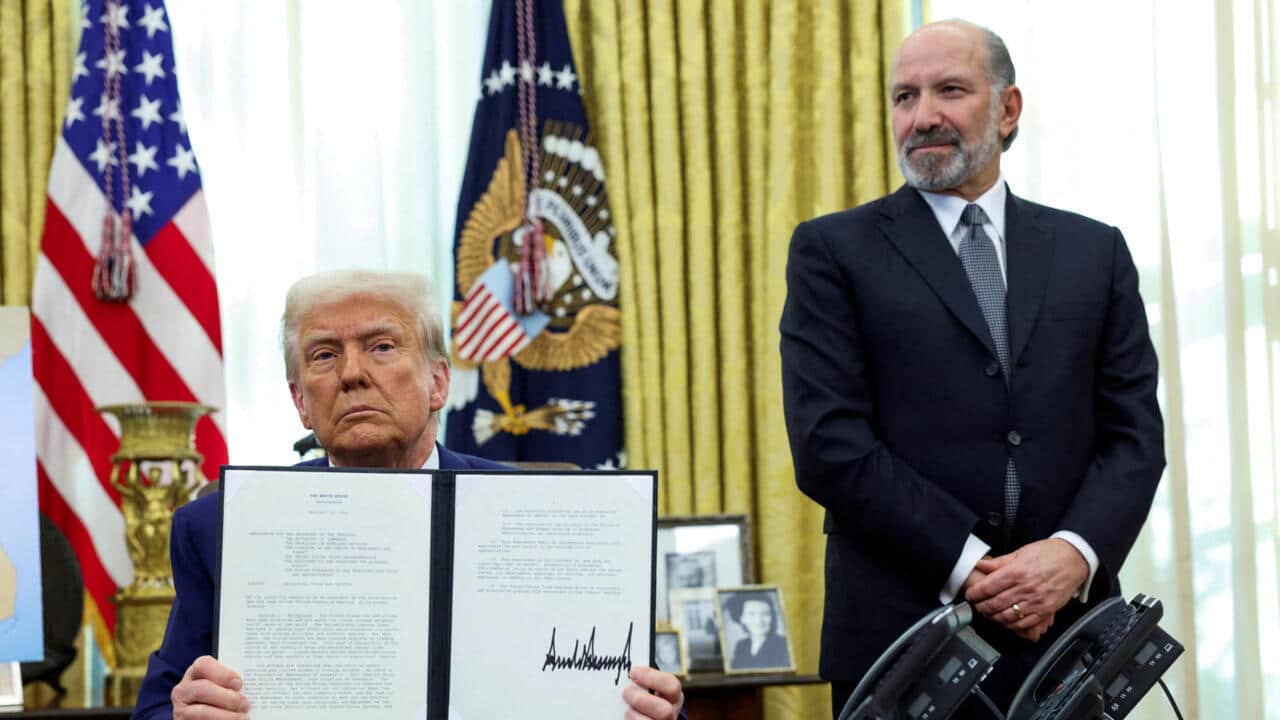Trump’s tariffs threaten Ford’s engine production in Almussafes

The imposition of new tariffs of 25% by U.S. President Donald Trump has unleashed a significant uncertainty in the global automotive industry, directly affecting the production of engines at Ford’s plant in Almussafes, Comunitat Valenciana. While the region does not export finished vehicles to the United States, the impact on components such as engines and drive shafts is undeniable, threatening the economic pillar it represents for the area. This challenging context adds to a critical transitional phase towards the electric vehicle in the European automotive sector.
Summary
The automotive industry is facing significant uncertainty due to the 25% tariffs imposed by U.S. President Donald Trump on light vehicles and their components. In Spain, the Ford factory in Almussafes, Comunitat Valenciana, is particularly at risk since it is one of the main exporters of engines and drive shafts to the United States. As European countries deal with the effects, the Comunitat seeks to adapt its economy to these protectionist measures that could hinder its trade relationship with foreign markets, affecting numerous local industries and businesses.
Impact of tariffs on automotive production
The announcement of 25% tariffs by the United States on light vehicles and components has caused shock in the global automotive sector. Although it does not export complete vehicles to the United States, Comunitat Valenciana is a prominent exporter of engines and important parts such as drive shafts. This measure poses a challenge for the industry, altering the flow of exports and forcing strategic revisions.
Threat to the Ford plant in Almussafes
The Ford plant located in Almussafes is among the most affected by these tariff changes. In 2024, the Comunitat exported engines valued at 539 million euros, and a significant part of this figure was destined for the United States. The tariffs also affect drive shafts, which last year represented 49 million euros in exports. With the United States being a key market, changes in trade policy are pressuring workers and managers to seek alternative options.
The importance of European markets
Beyond the United States, Valencian trade faces challenges within the European context. The main clients of the Comunitat are the automotive industries of Germany and France, which absorb 30% of the exports of crucial components. However, European uncertainty, driven by changes in regulations and market conditions, could lead to a reduction in demand, affecting the ability of the Valencian industry to secure stable contracts.
The ripple effect of the tariffs
The tariffs from the United States are just a part of a larger change looming over the global automotive industry. The global outsourcing of manufacturing means that every move has significant repercussions: elevated costs, uncertain investment decisions, and rising prices. Companies must evaluate how to respond to these impacts, considering that the effects of tariffs extend beyond national borders.
Movements towards electrification and industrial transition
The European automotive industry, facing pressure from tariffs, is also at a crossroads with the transition towards the electric vehicle. This critical period must be leveraged to boost investment in innovation and technology. The European Union has allocated 1 billion euros to support the electric vehicle battery industry, which is crucial to remain competitive.
Impact of Trump’s tariffs in Almussafes
The recent tariffs imposed by the Trump administration represent a significant threat to the production of engines at the Ford plant in Almussafes. This measure could increase the export costs of essential vehicle components, affecting not only Almussafes but also the entire automotive industry of the Comunitat Valenciana. The Ford plant has been an important pillar in the local economy, and any impact on its production could have negative repercussions on employment and the regional economy.
The European automotive industry is already facing significant challenges due to the transition towards cleaner and more efficient technologies. The market distortions caused by these tariffs could hinder this critical process of innovation and adaptation. Additionally, the new import rate may affect the investment decisions of major multinational companies, further increasing uncertainty in a sector that seeks to adapt to the demands of the 21st century.
In this context, it is crucial for local automotive industries to seek to strengthen their trade ties with other countries and diversify their markets to reduce dependence on regions particularly affected by protectionist trade policies. Collaboration and support from governments are equally necessary to mitigate the negative impact of these measures and foster an environment conducive to innovation and sustainable growth.
Finally, although the initial impact of the tariffs may seem milder in Spain compared to other European countries, the capacity for adaptation and response of the Comunitat Valenciana to this uncertain landscape will be essential to ensure the stability and continuity of its presence in the global automotive components market.




